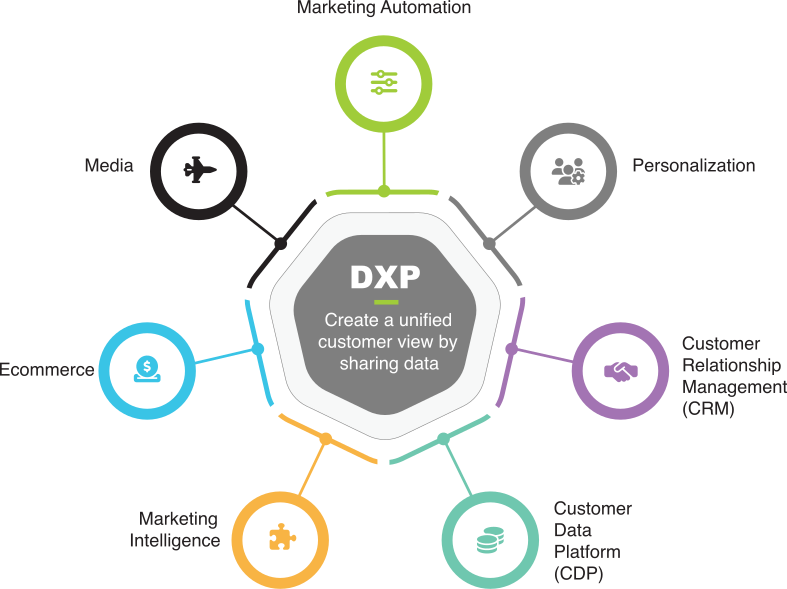Summary
A Digital Experience Platform (DXP) is a software framework that allows businesses to create and manage personalized, omnichannel experiences for their customers. DXPs enable businesses to create websites, mobile apps, and other digital touchpoints that provide a seamless and consistent experience for users across multiple channels.
DXPs typically provide a variety of tools and features for managing content, personalization, analytics, and integration with other business systems. They often include features such as drag-and-drop page builders, content management systems, customer data management, and marketing automation.
DXPs are increasingly important for businesses that want to provide a personalized and engaging digital experience for their customers. By using a DXP, businesses can create a unified and consistent experience across multiple channels, including web, mobile, and social media.
However, implementing a DXP can be complex and requires significant resources and expertise. Additionally, DXPs may be expensive to license and maintain, which can be a barrier for smaller businesses.

Pros
- Improved customer experience: DXP provides a seamless and personalized experience to customers across different channels, which improves customer satisfaction and loyalty.
- Streamlined operations: DXP can help organizations to streamline their operations by integrating different systems and processes.
- Increased efficiency: DXP can automate many routine tasks and workflows, which saves time and increases efficiency.
- Better data management: DXP provides a centralized platform for managing customer data, which can help organizations to gain better insights and make data-driven decisions.
- Scalability: DXP can be easily scaled up or down based on the needs of the organization, which makes it a flexible solution.
Cons
- Cost: DXP can be expensive to implement and maintain, which may be a challenge for small or medium-sized businesses.
- Complexity: DXP can be complex to set up and configure, which may require specialized skills and resources.
- Integration challenges: Integrating DXP with legacy systems or other third-party applications can be a challenge.
- Security risks: DXP can be vulnerable to security risks such as data breaches or cyber attacks, which requires organizations to implement robust security measures.
- Dependence on technology: DXP requires a high degree of dependence on technology, which may be a challenge if there are technical issues or outages.





